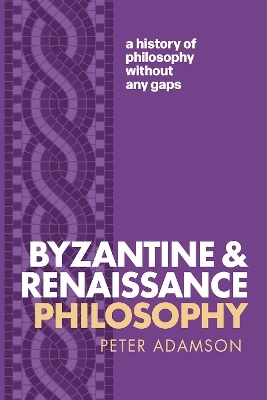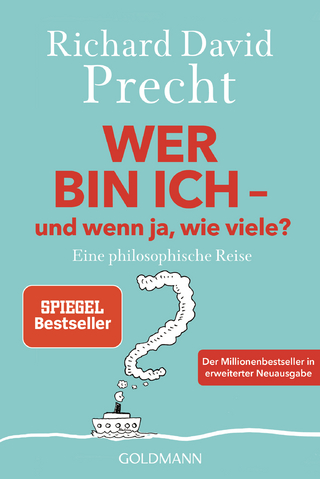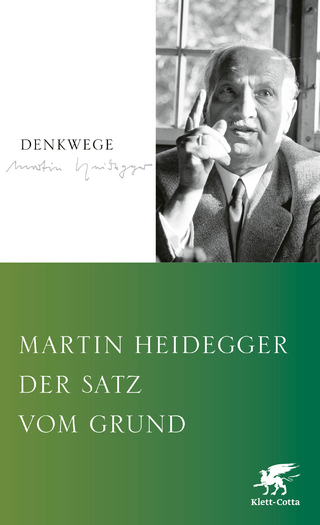
Byzantine and Renaissance Philosophy
Oxford University Press (Verlag)
978-0-19-894211-5 (ISBN)
- Noch nicht erschienen (ca. März 2025)
- Portofrei ab CHF 40
- Auch auf Rechnung
- Artikel merken
Peter Adamson presents an engaging and wide-ranging introduction to the thinkers and movements of two great intellectual cultures: Byzantium and the Italian Renaissance. First, he traces the development of philosophy in the Eastern Christian world, from such early figures as John of Damascus in the eighth century to the late Byzantine scholars of the fifteenth century. Adamson introduces major figures like Michael Psellos, Anna Komnene, and Gregory Palamas, and examines the philosophical significance of such cultural phenomena as iconoclasm and conceptions of gender. We discover the little-known traditions of philosophy in Syriac, Armenian, and Georgian. These chapters also explore the scientific, political, and historical literature of Byzantium. There is a close connection to the second half of the book, since thinkers of the Greek East helped to spark the humanist movement in Italy. Adamson tells the story of the rebirth of philosophy in Italy in the fifteenth and sixteenth centuries. We encounter such famous names as Christine de Pizan, Niccolò Machiavelli, Giordano Bruno, and Galileo, but as always in this book series such major figures are read alongside contemporaries who are not so well known, including fascinating figures like Lorenzo Valla, Girolamo Savonarola, and Bernardino Telesio. Major historical themes include the humanist engagement with ancient literature, the emergence of women humanists, the flowering of Republican government in Renaissance Italy, the continuation of Aristotelian and scholastic philosophy alongside humanism, and breakthroughs in science. All areas of philosophy, from theories of economics and aesthetics to accounts of the human mind, are featured. This is the sixth volume of Adamson's History of Philosophy Without Any Gaps series, taking us to the threshold of the early modern era.
Peter Adamson received his BA from Williams College and PhD in Philosophy from the University of Notre Dame. He worked at King's College London from 2000 until 2012. Adamson subsequently moved to the Ludwig-Maximilians-Universität München, where is Professor of Late Ancient and Arabic Philosophy. He has published widely in ancient and medieval philosophy, and he is the host of the popular History of Philosophy podcast.
Preface
Philosophy in Byzantium
1: The Empire Strikes Back: Introduction to Byzantine Philosophy
2: On the Eastern Front: Philosophy in Syriac and Armenian
3: Don't Picture This: Iconoclasm
4: Behind Enemy Lines: John of Damascus
5: Collectors Items: Photius and Byzantine Compilations
6: Consul of the Philosophers: Michael Psellos
7: Hooked on Classics: Italos and the Debate over Pagan Learning
8: Purple Prose: Byzantine Political Philosophy
9: Elements of Style: Rhetoric in Byzantium
10: Past Masters: Byzantine Historiography
11: Queen of the Sciences: Anna Komnene and her Circle
12: Wiser than Men: Gender in Byzantium
13: Just Measures: Law, Money, and War in Byzantium
14: Made by Hand: Byzantine Manuscripts
15: Georgia on My Mind: Petritsi and the Proclus Revival
16: People of the South: Byzantium and Islam
17: Do the Math: Science in the Palaiologan Renaissance
18: Through His Works You Shall Know Him: Palamas and Hesychasm
19: United We Fall: Latin Philosophy in Byzantium
20: Platonic Love: Gemistos Plethon
21: Istanbul (not Constantinople): the Later Orthodox Tradition
The Italian Renaissance
22: Old News: Introduction to the Renaissance
23: Greeks Bearing Gifts: Byzantine Scholars in Italy
24: Republic of Letters: Italian Humanism
25: Literary Criticism: Lorenzo Valla
26: Difficult to be Good: Humanist Ethics
27: Chance Encounters: Reviving Hellenistic philosophy
28: We Built This City: Christine de Pizan
29: More Rare Than the Phoenix: Italian Women Humanists
30: All About Eve: the Defence of Women
31: I'd Like to Thank the Academy: Florentine Platonism
32: Footnotes to Plato: Marsilio Ficino
33: True Romance: Theories of Love
34: As Far as East from West: Jewish Philosophy in Renaissance Italy
35: The Count of Concord: Pico della Mirandola
36: What a Piece of Work is Man: Manetti and Pico on Human Nature
37: Bonfire of the Vanities: Savonarola
38: The Sweet Restraints of Liberty: Republicanism and Civic Humanism
39: No More Mr Nice Guy: Machiavelli
40: Sense of Humors: Machiavelli on Republicanism
41: The Teacher of Our Actions: Renaissance Historiography
42: No Place Like Home: Renaissance Utopias
43: Greed is Good: Renaissance Economics
44: Town and Gown: Italian Universities
45: I'd Like to Thank the Lyceum: Aristotle in Renaissance Italy
46: Of Two Minds: Pomponazzi and Nifo on the Intellect
47: There and Back Again: Zabarella on Scientific Method
48: The Measure of All Things: Mathematics and Art
49: Just What the Doctor Ordered: Renaissance Medicine
50: Man of Discoveries: Girolamo Cardano
51: Spirits in the Material World: Telesio and Campanella on Nature
52: The Men Who Saw Tomorrow: Renaissance Magic and Astrology
53: Boundless Enthusiasm: Giordano Bruno
54: The Harder They Fall: Galileo and the Renaissance
| Erscheint lt. Verlag | 13.3.2025 |
|---|---|
| Reihe/Serie | A History of Philosophy |
| Verlagsort | Oxford |
| Sprache | englisch |
| Maße | 156 x 234 mm |
| Themenwelt | Geisteswissenschaften ► Philosophie ► Metaphysik / Ontologie |
| Geisteswissenschaften ► Philosophie ► Philosophie des Mittelalters | |
| Geisteswissenschaften ► Religion / Theologie | |
| ISBN-10 | 0-19-894211-7 / 0198942117 |
| ISBN-13 | 978-0-19-894211-5 / 9780198942115 |
| Zustand | Neuware |
| Informationen gemäß Produktsicherheitsverordnung (GPSR) | |
| Haben Sie eine Frage zum Produkt? |
aus dem Bereich


